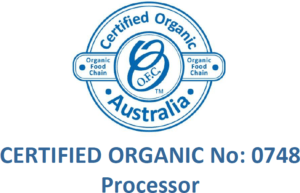The following list of nutrient dense vegetables, are crucial for a healthy diet, and essential for boosting your immune system naturally with the coming cooler weather. If possible, obtained from organic grown sources/ farms…try Northey St markets, near RBH hospital open early every Sunday morning.
Artichoke: Globe artichokes have been eaten since Roman times. Their Health benefits include: assists liver function, aids digestion and supports gallbladder function, can lower cholesterol and reduce fluid retention, may help to steady blood sugar levels. Key nutritional values of a 250g cooked artichoke include Kilojoules 20/85, Potassium 330mg, Folate 50mcg, Iron & Zinc 0.5mg,
small artichoke heads can be eaten whole, cooked or very thinly sliced with an oil dressing, or sautéed and added to dishes like risotto. To cook a large artichoke, boil in unsalted water for 35-40 mins. until a leaf comes away easily. Eat hot or cold.
Broccoli: is rich in nutrients, minerals and anti-oxidants. As with cabbage it is a cruciferous vegetable and a protective food. Health benefits may include, reducing the risk of heart disease, stroke, cancer and spina bifida, & may reduce the risk of cataracts and assist with anaemia. Key nutritional values per 100g raw broccoli include kilojoules 33/138, Beta Carotene 575mcg, Vitamin C 87mg, Calcium 56mg, Folate 90mcg, Iron 1.7mg, , Vitamin E 1.3mg and Zinc 0.6mg. eat about 1-3 servings 0f 170g broccoli a week. Freshly cut broccoli is sweet and tender and may be eaten raw in salads, or steamed briefly, in very little water to retain its nutrients.
Cabbage: This good value, economical cruciferous vegetable, stands out for its health values, particularly being a great source of fibre, minerals and vitamins. Has the same health benefits as broccoli and additionally speeds ulcer healing and improves digestive health. Key nutritional values per 100g raw, include kilojoules 26/109, Anti-oxidant -beta carotene 385mcg, Calcium 52mg, Folate 75mcg, Potassium 270mg, Vitamin C 50mg. Calcium and Potassium are alkalising minerals and assist with balancing acidity. Eating 1 serve of cabbage a week may lower the risk of colon cancer. For a general protective effect 2-3 serves are needed.
Capsicum: Brightly coloured reds, yellows and greens, they contain high levels of anti-oxidants and are rich sources of Vitamin C. Nutritional Values per 100g raw red capsicum are kilojoules 32/134, Carotenes 3,840mcg, Vitamin C 140mg. Eat freely, raw or cooked. All capsicums are high in Vitamin C, but only the red ones are rich in beta carotene. Look for unwrinkled flesh, and keep chilled. The gorgeous colour of capsicums can transform many dishes.
Carrots: Carrots are excellent value as well as being good for you. The orange colour comes from the carotenes as carrots are a rich source of beta carotene. Beta carotene is not destroyed by cooking. Carrots can assist with lower blood cholesterol, protect against cancer and guard against food poisoning. Key nutritional values per 100g raw are kilojoules 30/125, Carotenes 8115mcg, fibre 24g, Vitamin C 6mg. Commercially grown carrots are prone to high pesticide residue, and should always be peeled before use unless bought organically.
Garlic: Scientists have uncovered the reason why garlic has such good health benefits. Garlic contains a compound called allicin which is a powerful antioxidant. Garlic is not only an excellent herb for creating and maintaining overall health, but it also has many lesser known, but powerful qualities. Garlic is proven to
- lower cholesterol,
- strengthen your body’s defenses against allergies;
- reduce blood pressure,
- prevent cancer,
- protect against bacterial and fungal infections,
- prevent dangerous blood clots and
- is packed with vitamins and nutrients. (Some of these include protein, potassium, Vitamins A, B, B2 and C, Calcium, Zinc and many others)
Just what makes garlic so good? Known scientifically as Allium sativum, garlic contains more than 100 biologically useful chemicals. Modern science has shown that garlic is a powerful and safe natural anti-biotic.The body does not appear to build up resistance to the garlic, so its positive health benefits continue over time. The general therapeutic dosage of garlic is 1,000 – 4,000 mg per day (using concentrated garlic capsules or tablets).
Lettuce and Salad Greens: There are more than 100 types of lettuce and salad greens. Leafy salad greens contain valuable minerals, vitamins and anti-oxidants and are usually eaten raw. Health benefits include reducing the potential risk for heart disease, cancer, and assists with digestion, nervous insomnia and liver health. Nutritional values per 100g lettuce are kilojoules 14/59, Carotenes 355mcg, Folate 55mcg, Potassium 220 mg, Vitamin c 5mg.
Onions: Onions have a natural anti-biotic function, as well as assisting to relieve congestion in the airways, assist with the reduced risk of heart attack, stroke and resistance to cancer. Key nutritional values per 100g raw onion peeled are kilojoules 36/150, fibre 1.4g, Potassium 160mg, niacin 0.7mg. Trials suggest eating half an onion a day, has positive health effects.
Seaweed: Seaweed is a traditional food being enjoyed for its subtle flavours, as well as health benefits. There are many types of seaweed such as kombu, nori, wakame, arame, and hijiki that are essential to Japanese cookery, & edible Atlantic seaweed.
Sweet Potato: Orange fleshed sweet potatoes are both sweet and savoury. They contain more vitamins than the ordinary white potatoes, with anti-oxidants and minerals as well. They are the only low fat food with a high Vitamin E level. Health benefits include rich source of vitamin E, anti-oxidant protection, assists heart health and regulate blood pressure and reduce anaemia. Nutritional values per 100g baked sweet potato are kj115/488, Carotenes 5,140mcg, Vitamin E 6mg, Vitamin C 23mg, Potassium 480mg,, iron 0.9mg, Fibre 3.3g, Zinc 0.4mg. A 225g serve of baked sweet potato, supplies all your daily carotene needs and more than double the daily Vitamin E requirement. It also contains half the daily recommended potassium intake for an adult & provides 2g of iron-25% of a mans’ daily need and 15% of a womans’ daily need. Sweet potato has a distinctive, sweet, chestnut-like flavour. Wash and score the skin and bake in their skins for about 1 hour at 190 degrees C.


